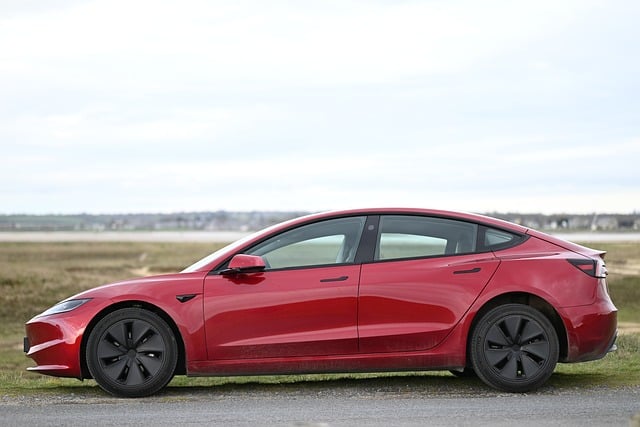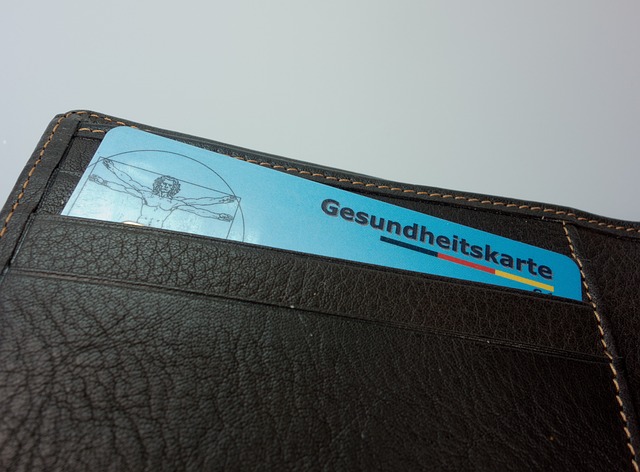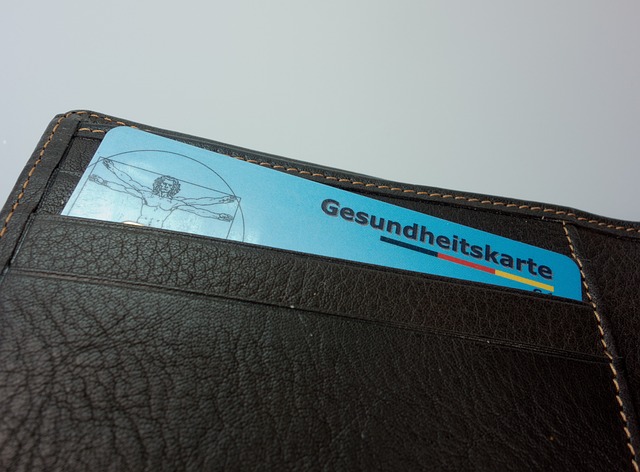Custom car insurance offers personalized protection for exotic or classic vehicles, allowing drivers to select specific coverage options tailored to their vehicle's value, purpose, and risks. Rates are influenced by vehicle make, model, driving history, age, and location. When choosing a provider, consider financial stability, reputation, pricing transparency, available discounts, and policy management ease. Comprehensive policies protect against non-accident damages, while specialized coverages cater to high-value items. Understanding the claim process is crucial for high-value vehicles. Avoid common mistakes like overlooking quotes or details. International travel requires custom coverage for peace of mind. The future of car insurance includes data analytics, IoT, and AI for personalized, dynamic policies based on real-time driver behavior data.
Looking for car insurance that fits your unique needs? Custom car insurance plans offer tailored coverage for specialized vehicles, from classic cars to high-performance sports cars. This comprehensive guide explores what sets custom insurance apart and why it’s beneficial for vehicle owners seeking personalized protection. We’ll navigate rates, provider selection, policy options, claims processes, and more, empowering you with the knowledge to make informed decisions about your car insurance needs.
Understanding Custom Car Insurance: What Sets It Apart?

Custom car insurance plans stand out from traditional policies by offering tailored coverage options designed to meet unique vehicle needs. Unlike standard car insurance, which often provides a one-size-fits-all approach, custom insurance allows drivers to select specific features they require. This flexibility is particularly beneficial for exotic or classic car owners who need specialized care for rare components and high-end repairs.
By choosing a custom plan, policyholders can include or exclude certain aspects of coverage, such as comprehensive protection for specialized accessories, liability for on-track racing events, or medical payments for occupants involved in accidents. This level of customization ensures drivers receive insurance that aligns precisely with their vehicle’s value, purpose, and associated risks, ultimately delivering peace of mind behind the wheel.
Benefits of Tailored Coverage for Your Vehicle

When it comes to car insurance, a one-size-fits-all approach may not be the best option for every vehicle owner. That’s where tailored coverage comes in—a custom-made solution for your specific needs. By evaluating various factors unique to your vehicle and driving habits, insurance providers can offer policies that extend beyond standard protections. This means you’ll have access to specialized benefits that directly address potential risks associated with your car.
For instance, if you own a classic or antique vehicle, tailored coverage could include provisions for specialized storage and restoration costs. Alternatively, high-end vehicles might benefit from enhanced security measures and personal property protection. Tailored car insurance plans also consider individual driving styles; safe drivers may qualify for incentives that lower premiums, while those who require comprehensive coverage due to frequent road trips or challenging conditions will find options designed to meet their needs without unnecessary expenses.
Factors Influencing Custom Insurance Rates

Custom car insurance plans offer tailored coverage based on unique vehicle features and personal driving profiles, ensuring that owners receive fair rates. Several factors significantly influence custom insurance rates for cars. One primary consideration is the vehicle’s make, model, and year. High-performance or luxury cars often come with higher premiums due to their increased value and potential for more severe damage in accidents. Customized parts and modifications also play a role; unique upgrades can enhance a car’s appeal but may raise insurance costs if they are considered high-risk additions.
Driving history is another critical aspect. Safe driving records generally lead to lower rates, as insurers perceive such drivers as less likely to be involved in accidents. Conversely, previous claims, moving violations, and at-fault accidents can substantially increase premiums. Age and location also matter; younger drivers or those living in areas with higher crime rates may face higher car insurance costs. Understanding these influencing factors is essential for custom car owners when comparing quotes and securing the best possible coverage.
Choosing the Right Provider: Key Considerations

When choosing a car insurance provider, several key considerations come into play. Firstly, understand your specific needs and preferences for coverage options. Different providers offer various plans with unique features, so evaluate what’s most important to you – comprehensive, collision, liability, or specialized coverages like rental car benefits or roadside assistance. Secondly, assess the financial stability and reputation of insurance companies. Look at their financial strength ratings from independent agencies, customer satisfaction scores, and claims-handling performance. This ensures reliability and peace of mind when making claims.
Additionally, consider factors such as pricing transparency, availability of discounts (like safe driver or bundle options), and convenience in policy management. Compare quotes from multiple providers to find the best value for your money without sacrificing quality. Remember, the right car insurance plan should offer adequate protection at a competitive price, tailored to your driving profile and vehicle type.
Navigating Policy Options and Add-ons

Navigating the world of car insurance can be a complex task, given the wide array of policy options and customizable add-ons available. To demystify this process, start by understanding your basic coverage needs. This typically includes liability, which protects you against claims from others in case of an accident, and collision, which covers repairs or replacement of your vehicle if it’s damaged. Once these core elements are in place, explore optional add-ons that cater to specific needs. For example, comprehensive insurance adds protection against non-accident related damages like theft or natural disasters.
Consider also options tailored to high-risk drivers, such as safe driving incentives and teen driver monitoring, which can help reduce premiums. Additionally, think about specific coverage for valuable items in your car, like electronics or collectibles. Car insurance plans are flexible, allowing you to customize them to fit your unique situation and budget. By carefully reviewing available options, you can create a policy that offers the right balance of protection and affordability.
Claim Process: What to Expect with Custom Policies

When it comes to custom car insurance plans, understanding the claim process is crucial. Unlike standard policies, custom coverage often involves more intricate steps due to the unique nature of high-value or specialized vehicles. However, this doesn’t mean the claims experience has to be complicated. In fact, many insurers offer streamlined procedures tailored for these specific policies.
During a claim with a custom car insurance plan, policyholders can expect clear communication from their insurance provider. The initial step typically involves reporting the incident, whether it’s damage from an accident or theft. From there, the insurer will assess the vehicle’s value, taking into account any modifications or rare features. This thorough evaluation ensures that claims are settled accurately and promptly, providing peace of mind for policyholders who invest in specialized coverage.
Common Mistakes to Avoid When Buying Custom Car Insurance

When purchasing custom car insurance, many drivers make mistakes that could lead to inadequate coverage or higher premiums. A common blunder is failing to compare quotes from multiple providers. Car insurance rates can vary significantly between companies, and shopping around ensures you get the best value for your needs. It’s also essential not to overlook the details of the policy. Custom car insurance often comes with specialized terms and exclusions; understanding what’s covered and what’s not is crucial to avoiding unexpected costs.
Another mistake to avoid is assuming that the cheapest option is always the best. While cost-effectiveness is a factor, cheap policies may offer limited benefits or exclude essential coverages. Prioritize comprehensive and collision coverage if your custom vehicle requires specialized care. Additionally, be mindful of any hidden fees or additional charges sneaked into the fine print. Reviewing the policy document thoroughly before committing ensures you’re aware of all terms and avoids post-purchase surprises.
International Travel and Custom Car Coverage

When planning international travel, having custom car insurance coverage is essential for peace of mind. Many standard car insurance policies do not extend to foreign countries, leaving drivers vulnerable to significant financial risks in case of an accident or theft. Custom car insurance plans are designed to fill these gaps by offering comprehensive coverage tailored to your specific needs while abroad. This includes liability protection, medical expenses, and sometimes even emergency roadside assistance services.
These specialized policies consider unique international driving regulations and varying local conditions, ensuring you’re covered in unfamiliar territories. Whether you’re a globetrotter or just taking a vacation overseas, investing in custom car insurance for your vehicle is a smart decision that can protect you from unexpected financial burdens during your travels.
Future Trends in Personalized Auto Insurance

The future of car insurance is poised for a significant shift towards personalization and technology integration. As data analytics advances, insurers can now tailor policies to individual drivers’ behaviors and risk profiles more accurately than ever before. This means that custom car insurance plans are set to become the norm, offering tailored coverage based on specific needs and driving habits. With the widespread adoption of Internet of Things (IoT) devices in vehicles, real-time data collection becomes feasible, allowing insurers to assess risk dynamically. For example, smart cars can track driving patterns, safety measures taken, and even vehicle maintenance routines, all of which contribute to more precise premium calculations.
Furthermore, emerging technologies like artificial intelligence (AI) will play a pivotal role in processing vast amounts of data quickly. AI algorithms can identify patterns, predict potential risks, and provide proactive recommendations for policyholders. This level of customization not only enhances customer satisfaction but also promotes safer driving habits. Personalized auto insurance plans are expected to be more flexible, allowing drivers to choose specific add-ons or exclusions based on their unique circumstances. Such trends will lead to a more transparent and adaptable car insurance industry, empowering individuals to make informed decisions about their vehicular coverage.
